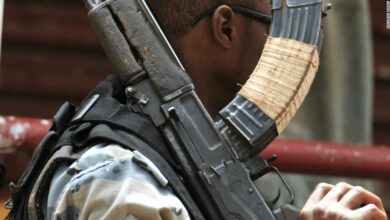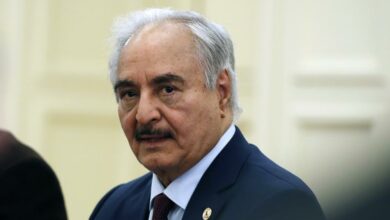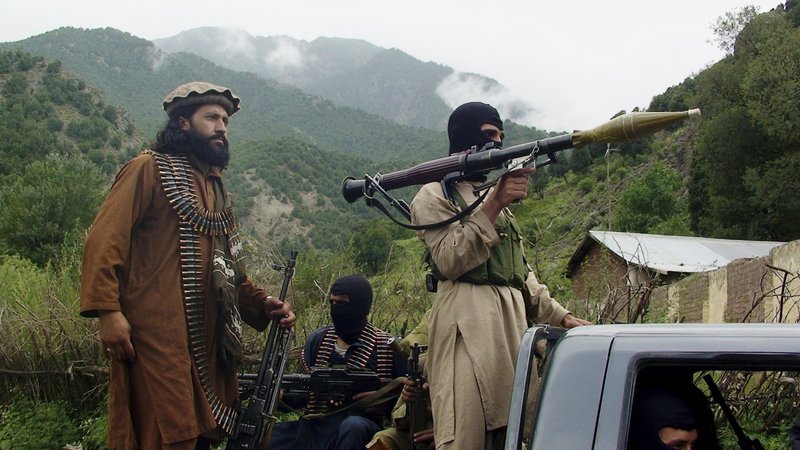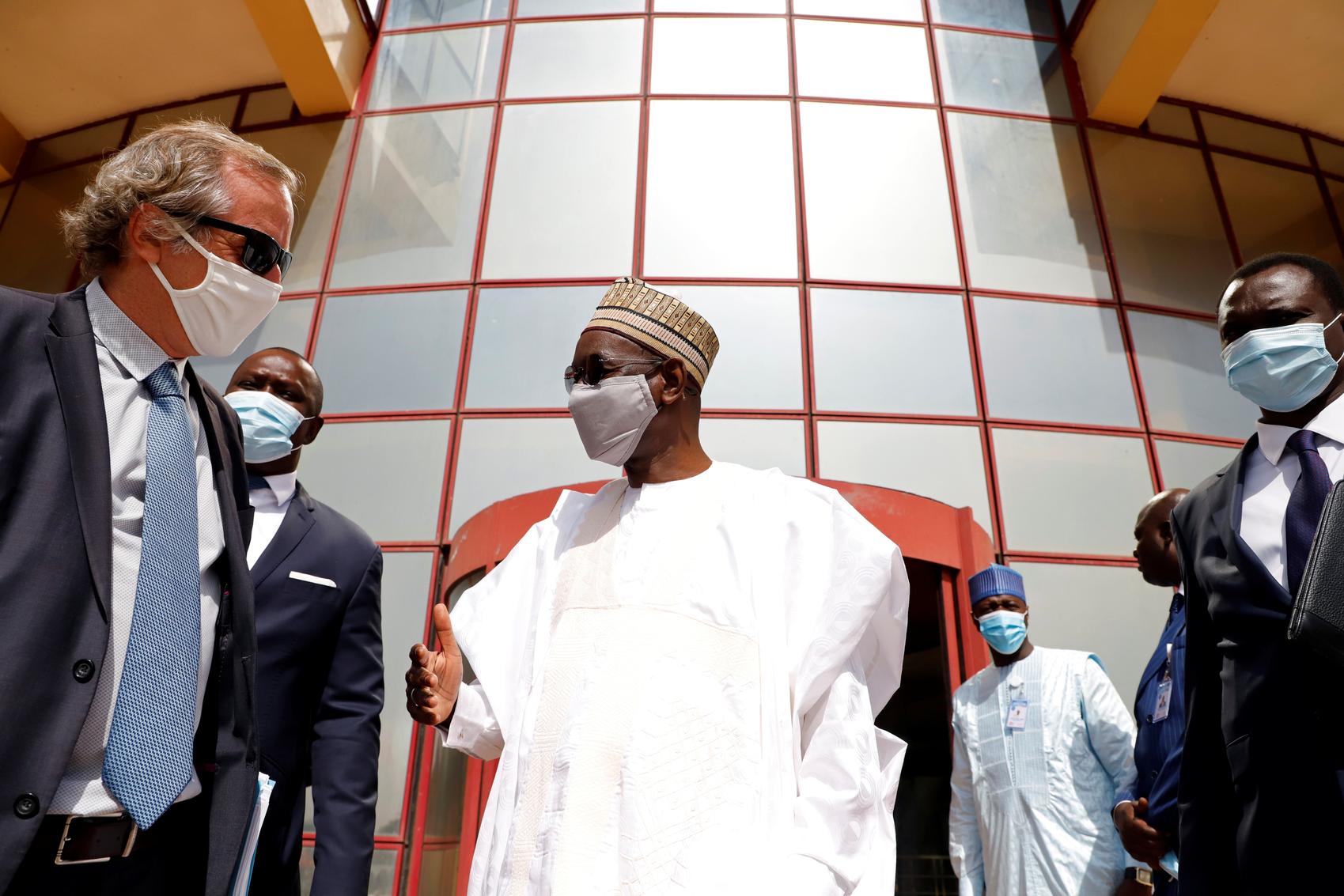For a man whose political program champions moderate Islam and citizenship, it is unfortunate that Mohamed Selim al-Awa became a household name in 2010 because of comments he made about Egyptian Christians storing weapons in their churches.
“Christians hoarding weapons in churches can only mean one thing: that they intend to use them against Muslims,” Awa said during a live interview with Al-Jazeera’s Ahmed Mansour, describing the state’s “weakness in standing up to the Coptic Orthodox Church” as “extremely provocative to Muslims.”
During the fallout after the interview, the lawyer and Islamic scholar said that his comments were misinterpreted, and that he was only referring to allegations that one particular church in Port Said had been involved in smuggling weapons from Israel.
The ham-fisted damage limitation continues today. “Copts are partners in this nation; we have lived with them for 14 centuries. They have the same rights and duties as us,” a status on Awa’s official page declares. Critics suggest that the presidential candidate is in the business of a particularly insincere politicking, and that his courting of the Christian vote is indicative of political opportunism.
Awa presents himself on his campaign website as a “man of vision” and “unchanging principle” who “predicted the Arab revolutions before they happened.”
Intersecting law with Islam, at home and abroad
Sixty-nine-year-old Awa found his principles tested early on in his professional life. After graduating from the University of Alexandria in law, he worked as a district attorney from 1963–1966 but was dismissed during the trial of Muslim Brotherhood leader Sayyed Qutb on charges of being involved with the group, which at the time was subject of a crackdown by President Gamal Abdel-Nasser. Awa says that he has never been a member of the Brotherhood.
Awa joined the State Lawsuits Authority and migrated to Kuwait. He was, he says, dismissed from this post for the same political reasons. With doors closed in Egypt, he traveled to London where he completed a PhD in comparative law at the School of Oriental and African Studies, and went on to teach law in universities in Egypt and abroad.
Awa has pursued his interest in jurisprudence and the intersection of Islam and the law through 22 published works. He is a former head of the International Union of Muslim Scholars founded by renowned scholar Youssef al-Qaradawy, and was involved in negotiations with imprisoned Jama'a al-Islamiya militants that led to the group’s renunciation of violence following a bloody era of terrorism in Egypt which peaked in the 1990s.
Awa’s connection with the transnational Islamic movement was most recently manifested in his call for the release of the leader of the Jama'a al-Islamiya Omar Abdel Rahman, the blind sheikh who has been serving a life sentence in the US for involvement in terrorism.
Moreover, Awa is known for supporting the Iranian Islamist regime and for alleged relations with its leaders. One reason is that he played a mediatory role to bring back Egyptians stranded in Iran after having fought on behalf of Egypt in Iraq in the first Gulf War.
Grappling for a constituency
Awa threw his hat in the presidential elections ring at the end of June 2011. Like fellow presidential candidate Abdel Moneim Abouel Fotouh, Awa sells himself as champion of a moderate Islam. Campaign manager Mohamed Mo’men (of Mo’men fast food outlets fame) told presenter Yosri Fouda during an OnTV appearance that Awa represents the “Islamist intellectual” and that citizenship is at the “heart of his outlook.”
He says that he represents “the strain of moderate Islam” practiced by the majority of Egyptians. So far his campaign — which he says is financed out of his own pocket together with supporters’ donations — has only been officially backed by the Wasat Party, for which he has been a supporting lawyer ever since the party tried to establish itself in the 1990s.
Nevertheless, he has been pledging for support from radical Islamist groups such as the Jama'a al-Islamiya's political arm, the Building and Development Party.
While his full political manifesto has not yet been issued, his campaign website lists several pivots of his electoral program including education, health and the rather unclear “re-discovery of the Egyptian human being.”
The Brotherhood, the current stronghold of power in Egypt, has denied persistent rumors that they will back Awa, which is generally considered unlikely given Wasat Party’s support of him. The Wasat Party was founded by a group of Brotherhood defectors.
Facing criticism for stance on the military
Out on the campaign trial, Awa has been buffeted with constant allegations that he has failed to be sufficiently critical of the actions of the Supreme Council of the Armed Forces (SCAF), and has had to justify the weapons-in-churches statements that follow him around wherever he goes.
He was faced with these accusations in a recent public campaign appearance, and when pressed by a member of the audience on his position on the SCAF, angrily responded, “I am here to present my point of view, not to be held to account.”
But whether he likes it or not, Awa is being held to account for his political stances during the revolution.
During an appearance in London last month Egyptian audience members interrupted Awa with chants against the SCAF and the Brotherhood and criticized him as a SCAF lackey.
Awa’s criticism of SCAF's actions has certainly been guarded. The tone of non-opposition was set early on in the revolution, when Awa said on 30 January 2011 during an Al-Jazeera interview that Ahmed Shafiq (then appointed prime minister) and Omar Suleiman (former head of intelligence and then appointed vice-president) are “known for their patriotism and probity” and that he “doesn’t regard them as a continuation of the Mubarak regime.”
During the constitutional amendments’ referendum in March 2011, Awa said that voting is a religious duty for Muslims and they must vote "yes" in order to “escape dictatorship.” The main divergence in the referendum surrounded whether parliamentary elections should precede constitution writing, or vice-versa. Islamists staunchly wanted elections first, in what was perceived as a quest to dominate the constitution-writing process. Accordingly, campaigning for a “yes” vote in the referendum was tied to religion, as Islamists warned that a “no” vote could mean a loss of Sharia as a main reference for legislation.
Awa has repeatedly called on SCAF to speed up the handover of power, but has also explained its dragging out of the transition from a planned six months to a year and a half as due to its being “under political pressure.” In November he told Al-Masry Al-Youm that SCAF generals “are doing the best they can, but the problem is their governing capabilities. They are not politicians. They don’t have expertise in dealing with non-military civilians.”
After the killing of 27 protesters outside the Maspero state television building in October when the army attacked a Christian march, Awa said that he had submitted evidence to the public prosecution office proving that it was “thugs” who had infiltrated the protest and attacked the demonstrators.
In December 2011, Awa was quoted as saying that he “trusts in SCAF and what it has done in the past period” and that SCAF has respected its promises to the people.
More recently, commenting on the imbroglio surrounding the NGO funding trial and the lifting of a travel ban on the foreign defendants, in which SCAF was accused of interfering in the judiciary under pressure from the US, Awa placed sole blame for the episode on Abdel-Moez Ibrahim, head of the Court of Appeals who is accused of interference in the case. Opprobrium for political players was limited to his call for punishment for those found to have interfered in the case.
“Judges have to have the strength to stand up to political decision makers. We have to differentiate between political decision-making done for the interests of the country and improper behavior by the judiciary,” Awa said during a television interview.




